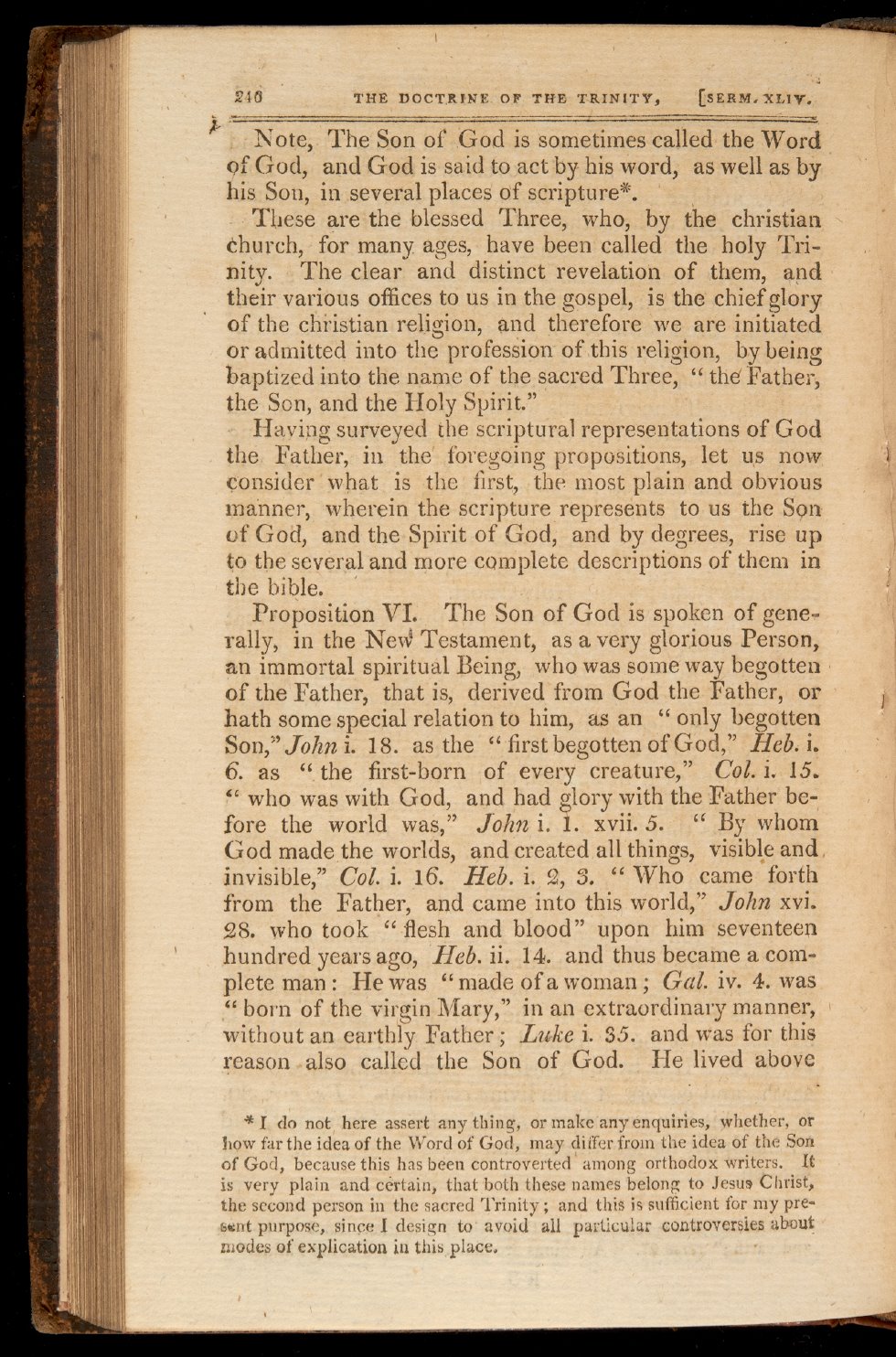

2"tB
THE DOCTRINE.
OF
THE
TRINITY,
[SERM.XLIV.
Note, The
Son
of
.God
is
sometimes called the
Word
of
God, and God
is
said
to
act
by
his
word, as
well
as
by
his
Son,
in several places
of scripture
*.
These are
the
blessed
Three,
who, by
the christian
Church,
for many
ages,
have been
called the
holy
Tri-.
nity.
The clear and distinct revelation of
them,
and
their
various
offices
to us in
the
gospel,
is
the chief
glory
of
the
christian
religion, and
therefore
we
are initiated
or
admitted into the profession
of
this religion,
by
being
baptized into the
name
of
the sacred
Three,
"
the Father,
the
Son,
and
the
Holy
Spirit."
Having
surveyed the
scriptural representations
of God
the.
Father,
in
the
foregoing propositions, let
us now
consider what
is
the
first,
the most plain and
obvious
manner, wherein the scripture represents
to
us
the Son
of
God, and the Spirit
of
God, and
by degrees,
rise
up
to
the several
and
more complete descriptions
of
them in
the
bible.
Proposition
VI.
The
Son
of
God
is
spoken
of
gene-
rally, in the
Neu!
Testament,
as
a
very glorious
Person,
an
immortal spiritual
Being, who was some
way
begotten
of
the
Father,
that
is,
derived from
God
the
Father,
or
bath
some
special
relation
to him, as an
"
only
begotten
Son,"
John
i.
18.
as
the
"first
begotten
of
God,"
Heb.
i.
6.
as
"
the
first
-born
of every creature,"
Col.
i. 15.
who
was with
God, and had
glory with the
Father
be-
fore
the world was,"
John
i.
1.
xvii. 5.
"
By
whom
God
made the
worlds,
and created
all things,
visible
and,
invisible,"
Col.
i.
16.
Heb.
i.
2,
3.
"
Who
came
forth
from the Father, and
came
into
this world,"
John
xvi.
28.
who
took
"flesh
and blood" upon
him seventeen
hundred
years
ago,
Heb.
ii.
14.
and thus became a
com-
plete
man
:
He
was
"
made
of
a
woman
;
Gal.
iv. 4.
was
«born
of
the virgin Mary,"
in an
extraordinary
manner,
without
an earthly
Father;
Lake
i.
35.
and
was
for
this
reason
also called the Son
of
God.
He
lived above
I
do
not,
here
assert
any thing,
or make
any enquiries, whether,
or
how far
the
idea of
the
Word of
God, may
differ from
the idea of the
Son
of
God,
because this
has
been controverted among orthodox writers.
It
is
very
plain and certain,
that
both these names belong to Jesus
Christ,
the
second person in
the
sacred
Trinity
;
and this
is
sufficient for
my pre-
sent
purpose, since I design
to
avoid all
particular
controversies about
anodes
of explication
in this place.

















